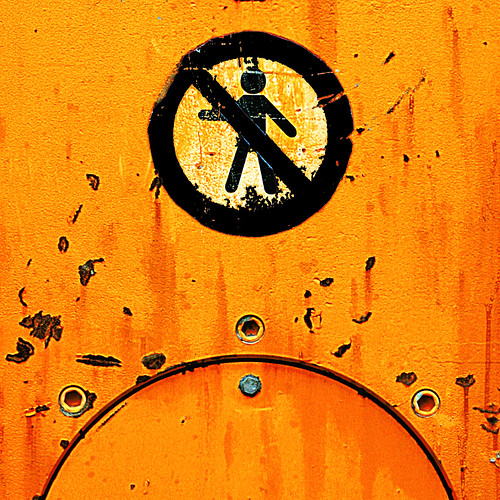To Geek or Not To Geek
/
A couple days ago, the New York Times ran a short article that cited Dr. David Anderegg as saying that the terms Geek and Nerd should be banned, in response to another article about the need for 'Cool Geeks'. This is a subject that I hold very near and dear, being a self proclaimed geek.
Like GeekDad on Wired.com, I believe that the New York Times somewhat misinterpreted Dr. Anderegg's argument, although it seems that it could have been better worded. I dislike the notion of banning any type of word, and I don't believe that calling somebody 'Nerd' or 'Geek' is nearly the same level as a racial or homophobic slur. But even to that extent, the idea that words should be banned because of the connotations that surround them is one that seems misguided at best. The constitution outlines the limits of the freedom of speech, but to me, this isn't necessarily a legal argument, it's one that is governed by social convention. Any sort of slur is at the height of rude and unacceptable behavior, and it is along these lines that this should be solved, not necessarily in the courtroom.
This, I think is what the point of Dr. Anderegg, who's written a book on the subject. The first article that the New York Times ran, New Programs Aim to Lure Young Into Digital Jobs notes that "But not enough young people are embracing computing — often because they are leery of being branded nerds." And that is a perfectly valid argument. While I've noticed that geek stuff is getting cooler all the time, from the black rimmed classes to obscure things, the connotations associated with being labeled a 'geek' or a 'nerd', ones that aren't good. I've come across a number of people over the past couple of years who are shocked at my admission to being a geek, but also try to talk me out of it. "You're not a geek!" has been a pretty common thing, and however helpful the suggestion is, it does show that there is quite a bit of a problem in the public image: ie, something right out of the 1970s, at the height of uncoolness.
Benjamin Nugent, in his 2009 book American Nerd: The Story of My People, does a fantastic job in uncovering some of the root origins of the stereotype of geekiness, and to just what a nerd is. (You can read an excerpt here. Much of the stereotype is perpetuated by a couple of things: the public persona as reinforced by mainstream media, either through television shows or newscasts, and through the actions of people who are, well, nerd-like. There is no shortage of the extremely stereotypical single, slightly (or overly) overweight, unemployed guy living in his mother's basement who's playing video games because he's inept in social situations.
This is the big, underlying point that needs to be understood - it's not the words that need to be changed, it's the behavior that reinforces the need for the words that needs to be better understood, in most cases. As the first article notes, there needs to be more 'Cool Geeks" as the economy changes and advances with technology. Part of that, I think, is providing better role models, in both the media and in person. There's some good things going on, and I believe that the overall trend is changing, if slightly. Shows such as 'The Big Bang Theory', 'Dollhouse' and 'Stargate Universe' both have a number of good examples of geeks in their prime element, while the information age allows us to study things to our heart's content, whether that is science fiction, automobiles or music.
What doesn't help, I think, is the general attitude towards learning and knowledge that the country suffers from, and was embodied in the prior Presidential administration, with an attitude that a straight shooter going by his gut is far better off than someone who takes the time to study and examine a situation. This isn't necessarily a political thing at all - I see this far more as a sort of embodiment of larger, ongoing trends. However, when the current administration is headed by someone who's posed with a lightsaber and as Superman, hopefully there's something going right when it comes to this sort of thing. (Come to think of it, McCain, during his first run for president, also posed with a lightsaber.)
The problem isn't just that there's a perception that geeks aren't cool, there's just not enough geeks and nerds out there who are totally comfortable with the distinction to wear it loud and proud, to overcome that particular image. We're comfortable in our own little niches, from online sites of like-minded people and fans to social groups. One of the solutions is that we need to be out and about more with our passions - this is one reason why I absolutely love the 501st Legion - through our communities to set an example for the kids who avoid what they really like because of the negative perceptions associated with it. But there is also a larger issue of someone who's knowledgeable just doesn't seem cool, and for the life of me, I have a hard time understanding why. I often can't fathom why people go out of their way to avoid learning, escaping to a life of dull repetition that's brought on by the wires and lights in a box. More than ever, we need geeks in the world, or at least the parts that make us good. Geeks are, and will be more popular than you think.
